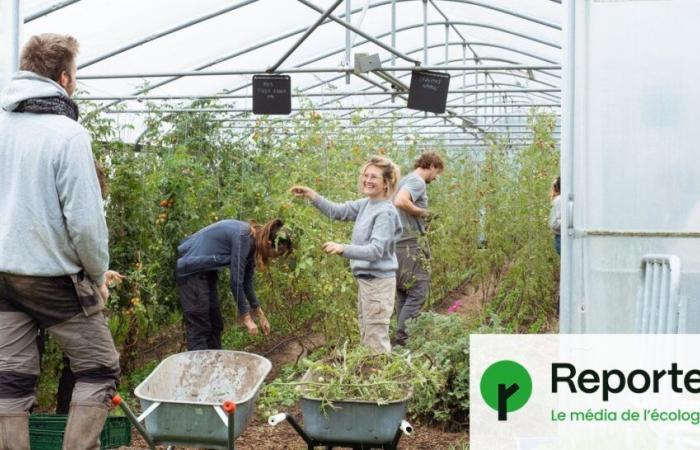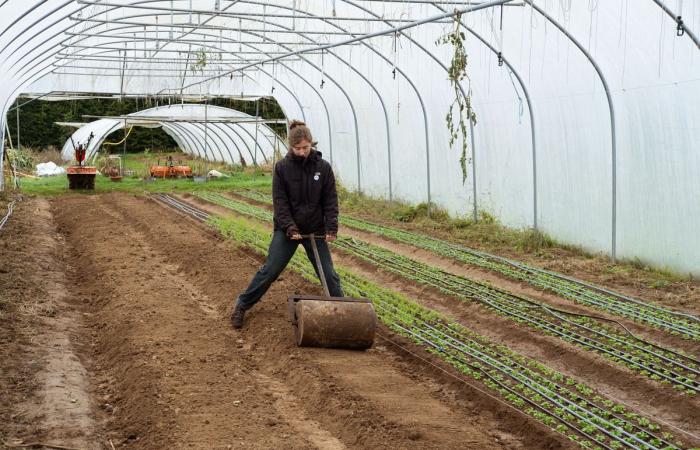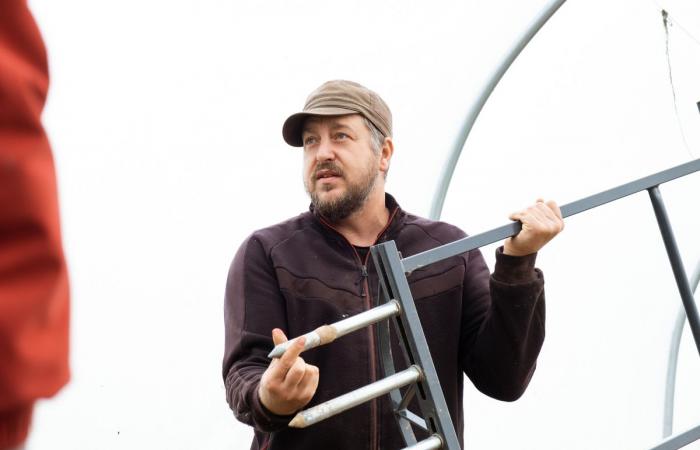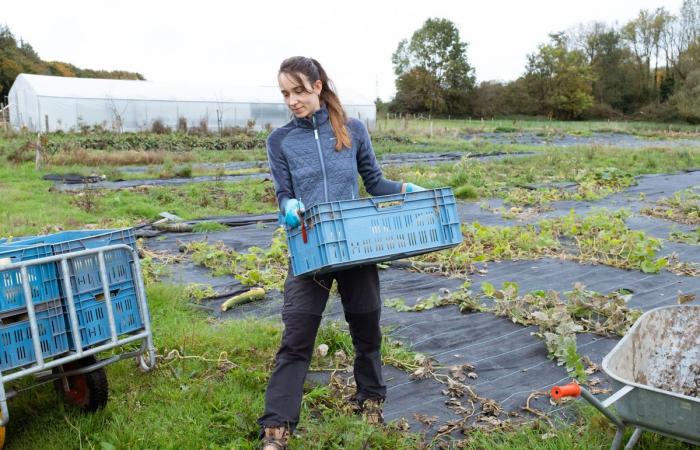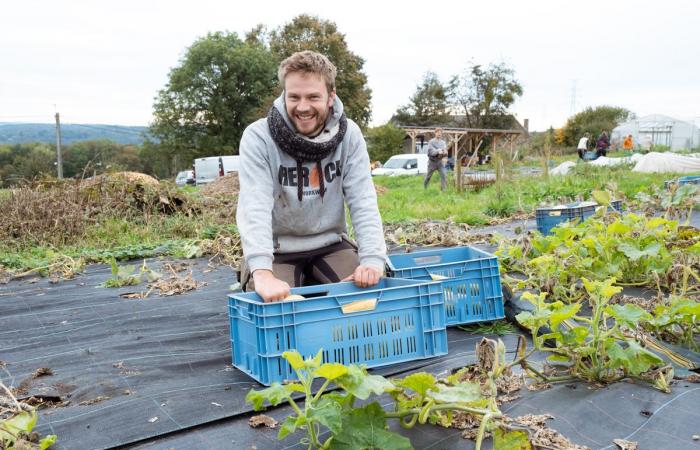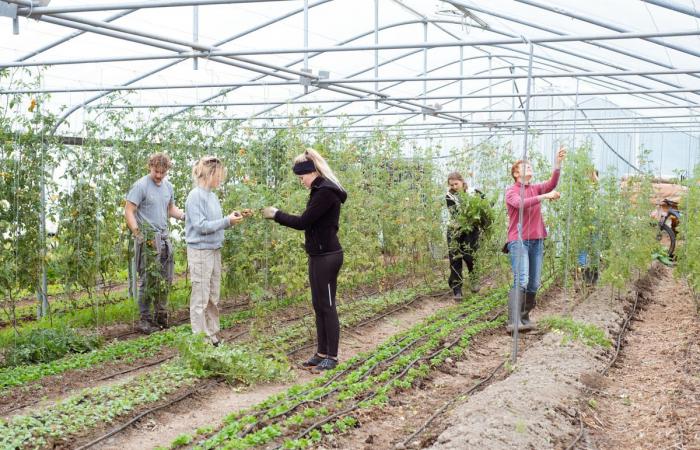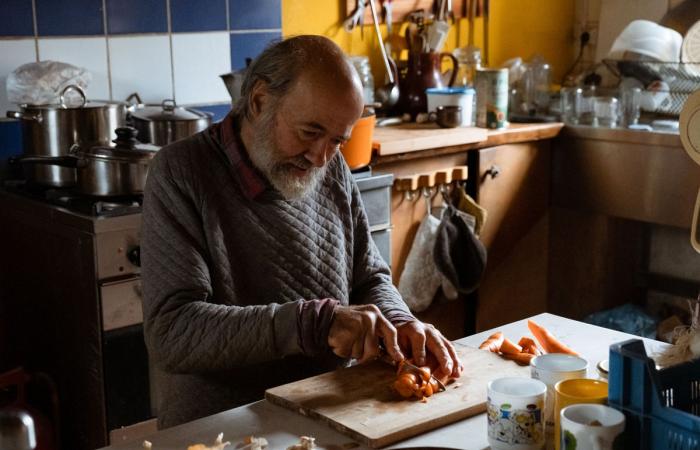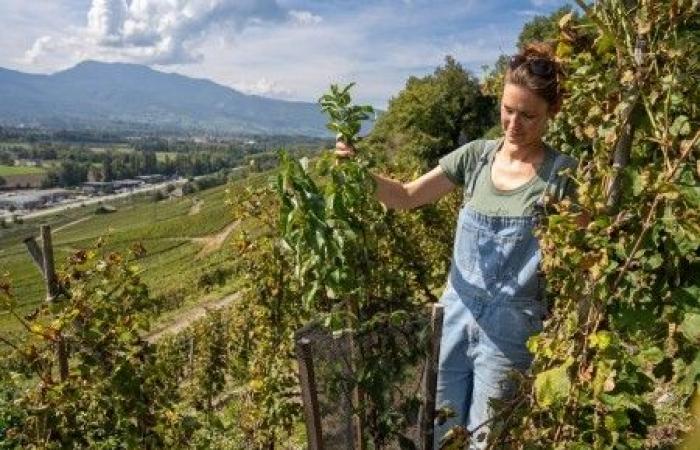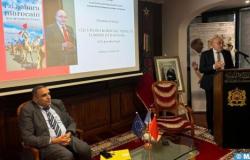Rotheux-Rimière, Esneux (Belgium), report
On this foggy Saturday morning, six volunteers are busy in the greenhouses of the Larock farm, nestled in the village of Rotheux-Rimière, in the Liège province. While Mélissa, Florence, Alexandra and Éric untangle the pole beans from the nets in order to remove them, Marieke and Léna dig channels with a shovel with Simon, who takes care of the market garden, then rake and flatten the clods of earth deposited on the side. The growing beds finally ready, the entire group begins to transplant 1,800 lamb’s lettuce plants into the freshly worked soil.
5 kilometers away, ten other volunteers are busy in the afternoon at the Beauregard farm, in the town of Esneux. Equipped with pruning shears, they separate the squash from their thick, prickly stems, lift them and delicately place them in the crates. In half an hour the harvest is folded.
Without delay, the group sets about its next mission: pulling the tomato plants out of the greenhouses. This work, more meticulous – you have to cut the plants, remove the claws, pick the still ripe fruits, group the stakes at the back of the rows – takes a good two hours. During which Maxime, the market gardener, goes back and forth to empty the wheelbarrows.
Mélissa untangles the pole beans from the fillets, at the Larock farm.
© Jeanne Fourneau / Reporterre
Originally from the area or from further afield, most of these volunteers responded to the call of the Peasant Action Brigades (BAP), a Belgian citizen network supporting peasant agriculture and the movement for food sovereignty. Driven in 2017 by the support network for smallholder agriculture (RéSAP) and coordinates in pairs ONG (Quinoa and Fian Belgium), BAP were born « from the observation that the link between eaters and farmers was missing »explains Marie-Hélène Lefèvre, member of the BAP and advocacy and mobilization manager at Fian.
To fill this gap, the citizen network has launched participatory projects in peasant farms, agroecological or in transition towards a sustainable model. Farms generally on a small scale, locally anchored, with agricultural practices that respect the soil and life.
Marieke flattening the growing beds.
© Jeanne Fourneau / Reporterre
« THE BAP [dont le nom fait référence aux brigades internationales qui, durant les années 1930, luttaient contre le fascisme en Espagne] claim to be activists because we are aware that we must fight a system which is gradually devouring peasant agriculture and making it disappear »continues Marie-Hélène.
68 % fewer farms since 1980
Between 1980 and 2019, Belgium lost 68 % of its farms, whose average surface area tripled during the same period. The number of agricultural workers in Wallonia has halved since 1990, according to the national statistics institute Statbel and the State of Walloon Agriculture website.
Added to this are climatic upheavals for which farmers are largely paying the price. This is particularly the case of Simon Elias. A native of Hesbaye, he lived in Brussels for a long time before« make a transition » and to turn to working the land, driven by the « need to get back to basics ».
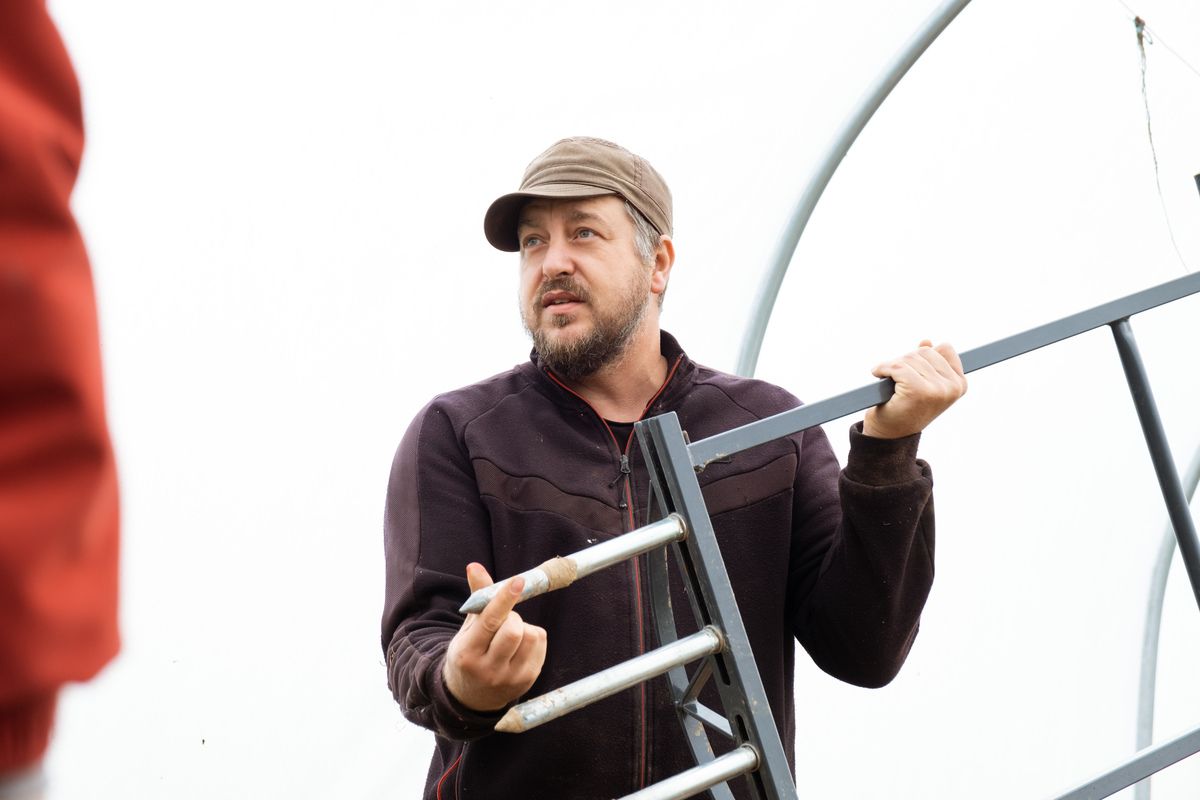
Market gardener Simon Elias presents his grelinette, which loosens the soil before sowing or planting.
© Jeanne Fourneau / Reporterre
First a volunteer facilitator in a social garden along the Ourthe, he landed at the Larock farm after the floods of July 2021 had everything « ruin ». In 2022, he created the non-profit association (ASBL) Under the tree, to take care of the market garden. But since then, the problems have continued. This year, « out of 1 ha 20, I gave up 80 acres because of the extreme conditions in terms of humidity »he says.
Not a single one of the 900 cabbages he planted with schoolchildren survived the slugs, which also devoured 15 acres of alfalfa. The recent passage of the Kirk depression having soaked the soil, Simon had to revise the day’s program, which included harvesting potatoes outdoors. Faced with the commitment of the participants, he is grateful: « Thank you for being here to help us. If you come back when everything has grown, come and taste the lamb’s lettuce »he tells them, all smiles.
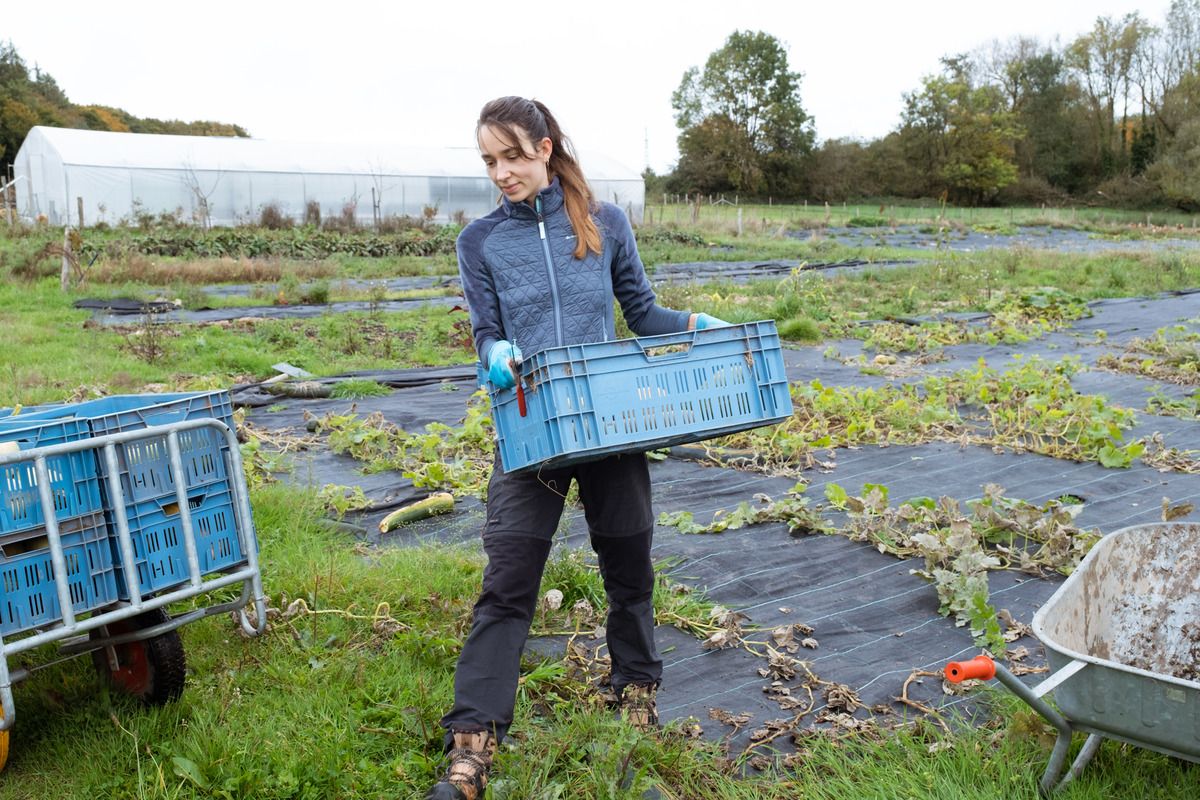
At the Beauregard farm, volunteers collect squash.
© Jeanne Fourneau / Reporterre
Joy also radiates from the face of Maxime Leroy in the face of the enthusiasm of the volunteers and the efficiency of the construction sites, « fun to do with several people »he said. Son of physical education teachers, he learned the trade of market gardening « on the job » alongside a professional in Spa, and in parallel with his agronomy studies.
« THE BAP take care of all the logistics while we are in the fields »
In 2019, he launched, with four other people, the Beauregard farm around several activities — organic market gardening, fruit growing, breeding of laying hens. Maxime only discovered the brigades last year.
« For farmers who have their noses to the grindstone in peak season, it’s super easy. Just decide on a date and a task, and the BAP take care of the communication and all the logistics while we are in the fields »rejoices the market gardener.
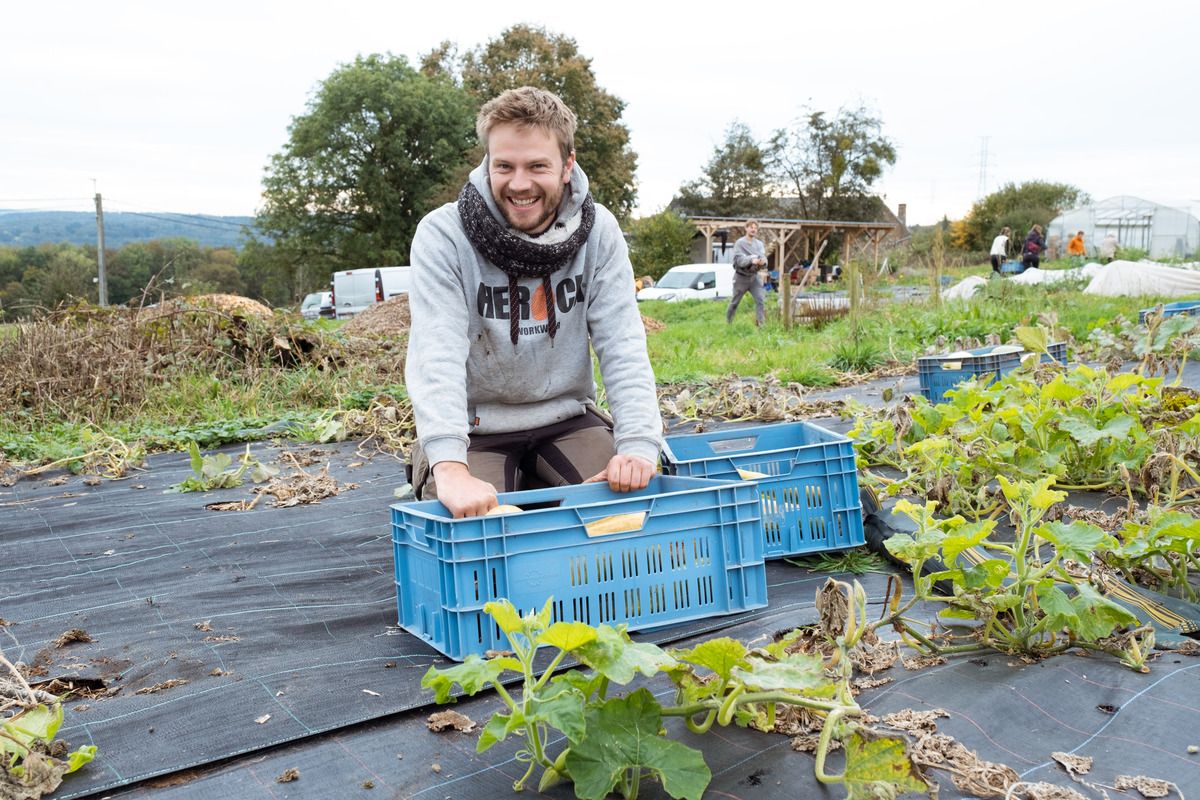
Maxime Leroy, market gardener at the Beauregard farm, is delighted with the help provided by the BAP.
© Jeanne Fourneau / Reporterre
However, the farm already has a group of cooperators who get involved on a voluntary basis every week. « As the cooperative has existed for four years, the initial enthusiasm has run out of steam a little. »confides Maxime. THE BAP therefore bring back a new wind and then, without them, « I could never have reached people from Brussels ».
Among the volunteers present that day, many came from the city. And many support, in their own way, local and peasant agriculture. Like Élodie, who works for the Adoc theater company, which initiated the Nourrir Bruxelles festival. « In this context, I collaborate with the BAP and I wanted a little concrete »she said.
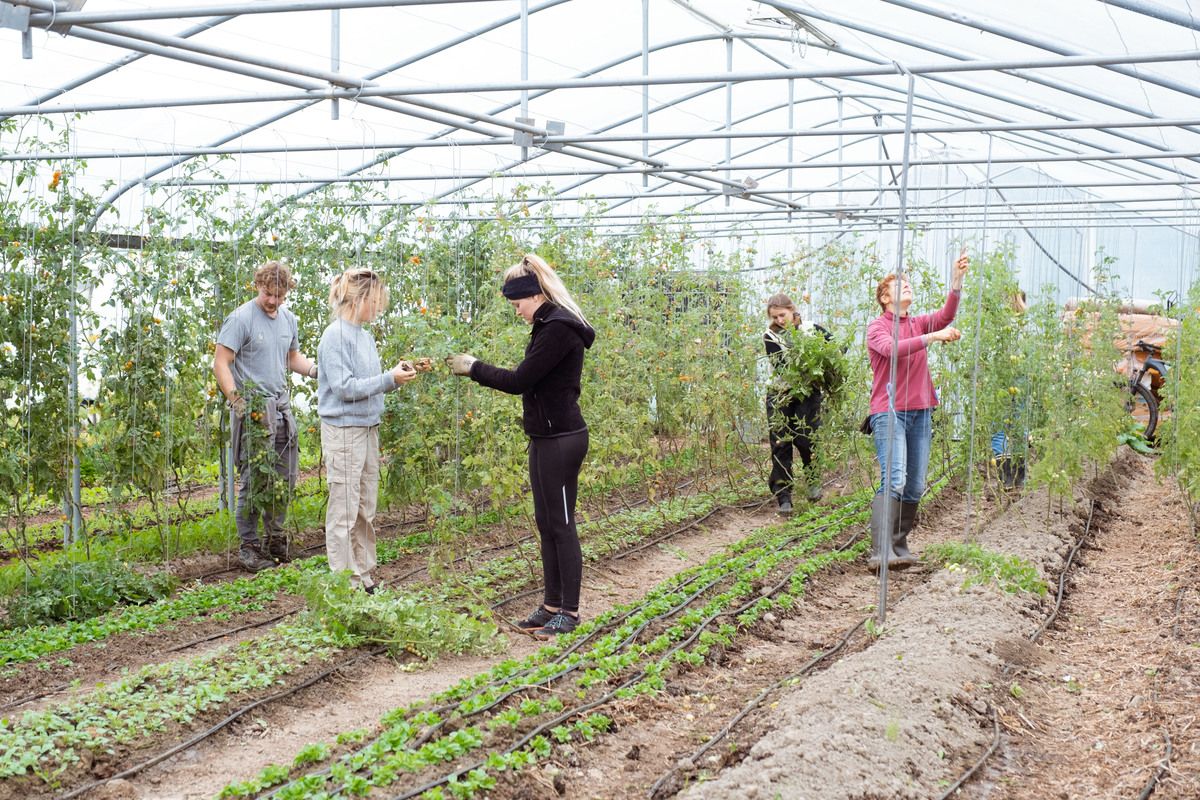
With the help of volunteers, the tomato harvest is much more efficient.
© Jeanne Fourneau / Reporterre
Or Mélissa and Florence who pick their own vegetables from the Cinq Branches farm in Soumagne. It was there, during a construction site, that they heard about the BAPand that they wanted « take a closer look, rather than on Instagram »says Florence, a cheesemaker by trade.
Aware of the difficult working conditions, Mélissa, who studies agronomy, also wanted « understand agricultural techniques » et « help to promote these activities ». For Alexandra, an architecture student in Liège, « passionate about food and producers »participating in these projects allows you to « change ideas ». Éric is following training in permaculture after having worked as a « independent on the roof »and would like to create a « garden that nourishes and heals ».
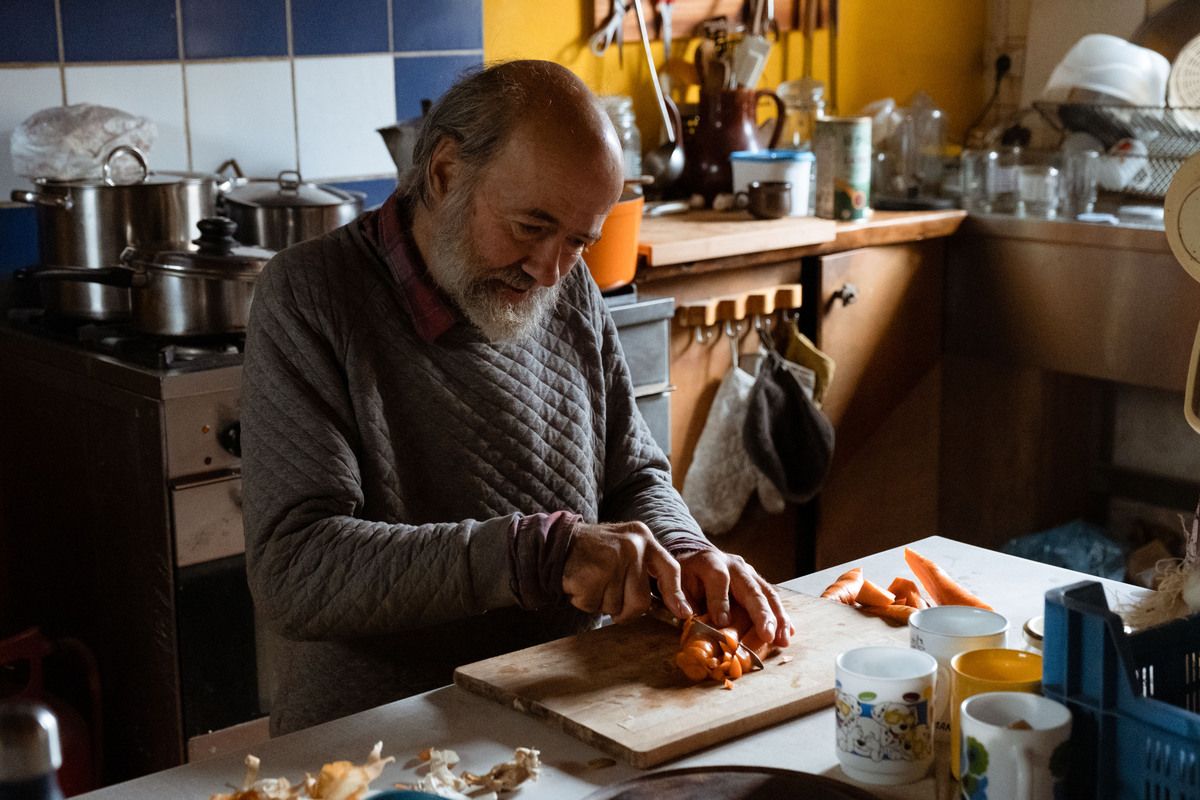
Louis, founder of the Larock farm, prepares soup for the brigadiers.
© Jeanne Fourneau / Reporterre
In addition to bringing « concrete support for farmers »participatory projects offer moments of sharing between farmers and volunteers, as many opportunities to discuss and address certain subjects… Marieke, of Flemish origin, takes the opportunity to understand the political issues. « Do you feel a difference with the new Walloon government? ? » [1] she asks Simon, a rake in her hand. « There is inertia. […] In a globalized market, [les producteurs wallons] are downgraded. We need local agriculture, where we eat and where we produce »replies the latter.
« If we don’t change the balance of power, farmers will continue to be crushed »
Stop granting public money to agribusiness and junk food and, instead, promote peasant agriculture and relocalize food: here are the demands made by the Peasant Action Brigades through political mobilizations . « A helping hand on the ground is valuable, but if we don’t change the balance of power structurally, farmers will continue to be crushed by the dominant system. We must combine the strength of citizens with that of farmers if we want to one day eat food that is healthy and that fairly pays those who produce it. »argues Marie-Hélène Lefèvre.
Public actions of civil disobedience are sometimes carried out in solidarity with associations and unions. On April 17, World Day of Peasant Struggles, a demonstration followed by the planting of potatoes on a plot threatened by an agrivoltaic project was carried out in Aiseau-Presles, « to remind us that the primary function of these lands must be to feed us »said the brigadist.
Our report in images:

